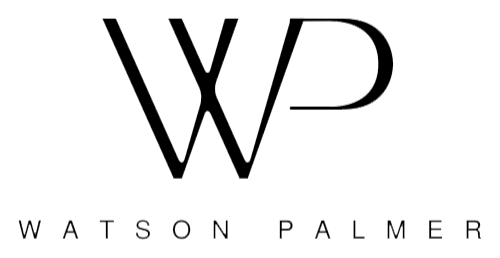Written by: Nicole Natalie Garcia (Associate Lawyer)
We are in a tug of war and two individuals are at each end. A buff figure leads one side, and a refined figure is on the opposite end. Directly in the middle a third figure passively wavers between the two sides. What is the rope these camps are tugging at? The rope symbolizes the COVID-19 vaccination debate. This heated argument sways between whether an individual should or should not be required to vaccinate.
The camp led by the buff figure, supports the vaccination because they believe if you are vaccinated you are not only protecting yourself, but you are protecting others from the virus. The figure in the middle stands with a demeanour of indifference, swaying between both camps and unphased by who will win, almost over the line but never on one side or the other. The camp on the opposite side, led by the refined figure, feels they should be free to choose. They do not want to be forced into taking a vaccination.
Every Canadian is affected by this debate. It affects individuals in their personal, professional and social atmospheres. The release of the COVID-19 vaccination has potential to infiltrate the workplace as employers consider their ability to mandate inoculation.
At Watson Labour Law we pride ourselves in being on the right side of the argument. This often requires defending the privacy rights of individuals, employees specifically, to ensure that those without a voice are heard. Time and time again Watson Labour Law has successfully argued against infringements on individual rights. We won one of the first cases in Canada against random drug testing and similarly won one of the first biometric cases in the country (stopping the Employer from introducing palm scanning sign-in of employees). Where injustice has been done towards an employee, we advocate for their rights to be protected.
The COVID-19 global pandemic is spread via respiratory droplets by an infected person through coughing, sneezing, singing, speaking etc. In an effort to reduce the spread, employees may find themselves in a tough spot should their employer begin to impose policies mandating the COVID-19 vaccination within the workplace. Popular opinion argues that in receiving the vaccination, you are contributing to the reduced spread of COVID-19 and protecting the vulnerable. However, there is a more compelling argument that this virus is here to stay and that the already existing protective measures in place are sufficient. Furthermore, because the vaccine is in early stages of development, to mandate it would be not only negligent, but a grave infringement of our privacy and security of the person rights.
Is an employer legally allowed to require vaccination within the workplace?
Cases in the past demonstrate that employers have tried to require vaccination in the workplace. This is even when the collective agreement did not offer the employer the authority to do so. The case of St. Peter’s Health System v C.U.P.E deals with this very issue. The employer relied on the management’s right clause to stipulate that in the case of a flu outbreak, anyone without the flu shot would be suspended from work without pay. The Union filed a grievance regarding the policy, arguing that this was a forced medical treatment and that it should have been bargained and consented to by the employee instead of being unilaterally enforced. The Union argued that mandating vaccination was an invasion of privacy and assault on a person. The arbitrator in this case decided that suspending an employee for refusing to undergo medical treatment was in fact an invasion of their right to privacy and by suspending the employee the employer was essentially “requiring” the vaccine. The arbitrator held that this mandate would constitute an assault on the employee since there was no consent to the treatment. The arbitrator emphasized that the mandate was considered a treatment and not simply an examination and therefore consent was a prerequisite. The arbitrator also emphasized that the employer should have sought direction from the Ministry of Health, especially considering that the mandate was not bargained for with the nurse’s Union, prior to implementing such a serious mandate.
According to health and safety legislation across the country, employers have an obligation to provide a safe workplace and to take all reasonable precautions to protect workers from illness. Immunization can be a solution to maintain a safe workplace in certain employment contexts, for example, among health care workers. The principle being that having staff vaccinated will protect the health of residents in long term care facilities, patients within hospitals who are vulnerable or employees themselves. In these work environments, policies have been implemented to recommend that nurses, doctors and staff receive or stay up to date with their immunization in order to protect vulnerable patients and themselves. In these workplaces, and where the employees are Unionized, the collective agreement can outline mandatory vaccination.
However, the policy is not always passively accepted by those required to inoculate. In Sault Area Hospital and Ontario Hospital Assn. 2015 there was inadequate scientific evidence to support the influenza vaccine mandate. The case held that where a policy is implemented, by way of management rights, it can still be coercive and undermining to the rights of employees. Furthermore, where the policy has punitive measures to encourage vaccination, it is evident that the policy is an unreasonable exercise of management’s rights. Arguably, the COVID-19 vaccination in the same way lacks adequate scientific research and a policy implementing inoculation at this stage could be considered an unreasonable exercise of management rights.
Throughout the COVID-19 pandemic, we have seen emergency legislation enacted, which has required face coverings in all indoor facilities as well as other precautionary measures. This enforcement has caused an uproar among individuals who argue that a mask requirement in itself infringes personal privacy. The COVID-19 vaccine argument would not be any different. Vaccinations are even more invasive when compared to mask wearing because the process by its very nature is medical treatment. Unlike a mask, you cannot choose to take a vaccine on or off. A vaccine is final, and it is medically developed, injected into your body and is not reversible once undertaken. A medical professional must facilitate the vaccination and from what we understand the process requires an initial injection followed by a booster shot a few weeks later. This process is not to be taken lightly or passively. The Ontario Government has not mandated the COVID-19 vaccine as of now, and a requirement to do so would be the decision of the employer. There is an argument that in the Government leaving this mandate to the employer, they are simply shifting liability. An employer should be cautious in implementing a policy without first negotiating with employees and considering their individual rights – which cannot be so easily circumvented.
Does a COVID-19 vaccine policy need to be specifically outlined in the collective agreement?
There are two avenues that can be taken to implement a mandatory vaccination policy within the Unionized workplace. The first avenue would be where the Union has already negotiated a provision that is clearly outlined in the collective agreement, which allows the implementation of this type of policy. This provision would allow the employer to implement a mandatory vaccination policy if that specific vaccination has been addressed within the provision. The normal and ordinary language used within the collective agreement will be the guiding force in determining the intention behind the policy. The policy must be consistent with the rest of the collective agreement. The policy in this context must be clear and unambiguous and would have to be intended within its context to achieve the policy objective. In this case it would be clear that the parties mutually agreed to the provision and therefore more cumbersome to argue against its enforceability.
The second avenue would be where a policy requiring a COVID-19 vaccination is implemented by way of an exercise of management powers, because it is not specifically addressed in the collective agreement. This is basically the employer unilaterally implementing and attempting to enforce a provision and relying on broad and general management powers to do so. The case of Butler Metal Products v. CAW demonstrates that the onus is on the employer to ensure that the management powers relied upon are exercised in a fair and reasonable way. There are various requirements that should be met by employers intending to mandate a COVID-19 vaccination by way of their management rights. Some requirements are:
- that the policy be reasonably necessary, fair and non-discriminatory;
- that there are allowable exemptions within the policy, such as medical or religious grounds;
- that the policy be clear and unequivocal;
- that the employee be made aware of the policy before it is acted on by the employer; and
- that the employee understands the nature and effect, or consequences when choosing not to adhere to the policy.
If you or your Union members feel that you are required to participate in the COVID-19 vaccine and do not believe that your collective agreement addresses this matter, you should speak to an experienced lawyer at Watson Labour Law to understand your rights.
What factors are considered when determining whether a COVID-19 vaccine policy is enforceable?
There are a number of factors that must be satisfied when determining whether a COVID-19 policy is enforceable. Herein are four important requirements elaborated on in Lumber & Sawmill Workers’ Union, Local 2537 v. KVP Co. Ltd.:
- Reasonableness – the policy should strike a balance between the employer’s objective and the employees right.
- Clarity – the policy should be clear and unequivocal.
- Awareness – it must be evidenced that the policy was brought to the employee’s attention prior to the employer acting on it.
- Consequences – the employee must understand the nature and effect of not adhering to the policy. For example, an employee should know that noncompliance could result in unpaid leave from work.
In essence there must be a substantial connection between the legitimate concern and the policy implemented. That being said, where the vaccination itself is up for question (which is arguably the case with the COVID-19 vaccine) the entire policy could be up for question, even where the motive of the policy is for the greater good. The COVID vaccine is in question due to lack of scientific evidence as well as the arguments of lack of appropriate comprehensive testing and suggestions that there is evidence of serious side effects.
The mutation of the COVID-19 virus is another factor to consider when assessing the validity of a policy mandating vaccination. Over the past ten months we have heard news of the potential mutation of the COVID-19 virus which could arguably result in the current vaccine becoming useless. Employee’s forced to take the vaccine could potentially be exposed to a new strain of the virus, rendering the present vaccination useless. Therefore, in understanding whether the implementation of a policy is reasonable, there must be objective evidence of a real problem that is to be addressed by a specific solution. The current COVID-19 vaccination may not be a specific solution to the real problem at hand, which is that this virus is here to stay and that it may morph over time.
Can an employee refuse to get vaccinated?
You cannot be forced to get a vaccine. You may however be required to adhere to other policies and regulations implemented by your employer to ensure a safe workplace, specifically when you are not vaccinated. For example, an employer may implement policies that stipulate if an employee is not vaccinated, and there is an outbreak within the workplace, that you remain home. An individual is able to refuse vaccination by way of religious, medical or other exemptions which should always be outlined within a policy mandating medical treatment. If you feel you have no option but to get vaccinated, or that you are being forced to leave work because you do not want to participate in the COVID-19 vaccine, Watson Labour Law is here to help. Give us a call and we would be happy to assist you.
In Summary
An employer is very likely to benefit from an employee being immunized as in their view the employee will be more likely to remain healthy, be available for duties and contribute to reducing the spread of infectious diseases. This means that employers may aggressively advertise the immunization and may provide clinical support to have workers immunized during their scheduled shift. There have been cases where Unions have argued that the consequences of employees refusing to be vaccinated were far too grave as it would result in employees being suspended from work without pay until an outbreak has passed. Other arguments hold that a vaccine mandate itself is a major infringement on an individual’s right to privacy and is an unreasonable exercise of management powers. This is a strong argument since employers should not be allowed to require proof of an employee’s medical record as the information is private and confidential. Furthermore, where a collective agreement is silent on this matter, there is an argument that a policy implementing inoculation would be a forced medical treatment. This would not have been bargained and agreed upon by the employer and employee alike. This concept goes against our very autonomy and our individual rights enjoyed within a free and democratic society.
At Watson Labour Law we care about how the COVID-19 pandemic is affecting you and your rights. We understand that these challenging times can be confusing, and we want you to know that we are in your corner!




